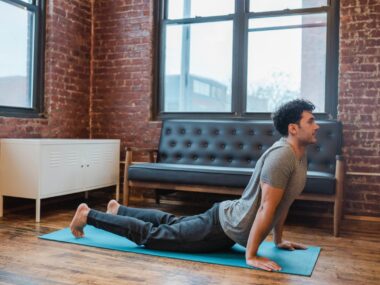Sleep plays a critical role in our overall health and well-being, influencing everything from cognitive function and mood regulation to immune function and metabolism. In recent years, there has been a growing recognition of the profound impact that sleep has on fitness and athletic performance. In this comprehensive guide, we’ll delve into the science of sleep, explore its effects on fitness and recovery, and provide practical tips for optimizing sleep quality to enhance athletic performance.
1. The Importance of Sleep: Quality sleep is essential for optimal health and performance. During sleep, the body undergoes crucial processes such as tissue repair, hormone regulation, and memory consolidation. Adequate sleep is linked to improved cognitive function, mood stability, and immune function, making it a cornerstone of overall well-being.
2. Sleep and Physical Recovery: Sleep plays a crucial role in the recovery process after exercise. During sleep, the body releases growth hormone, which stimulates muscle repair and growth. Additionally, sleep helps reduce inflammation and oxidative stress, both of which are common after intense physical activity. By prioritizing sleep, athletes can accelerate recovery and reduce the risk of injury.
3. Sleep and Exercise Performance: Quality sleep is closely linked to exercise performance. Sleep deprivation can impair cognitive function, reaction time, and decision-making abilities, all of which are critical for athletic performance. Additionally, inadequate sleep can lead to decreased endurance, strength, and power output, hindering overall athletic performance.
4. Sleep and Hormonal Balance: Sleep plays a key role in regulating hormone levels, including cortisol, testosterone, and growth hormone. Sleep deprivation can disrupt hormonal balance, leading to increased cortisol levels (a stress hormone) and decreased testosterone levels (which are important for muscle growth and recovery). By prioritizing sleep, athletes can optimize hormone levels for improved performance and recovery.
5. Sleep and Metabolism: Sleep influences metabolism in several ways. Sleep deprivation can disrupt insulin sensitivity and glucose metabolism, leading to increased risk of metabolic disorders such as diabetes and obesity. Additionally, inadequate sleep can alter hunger hormones, leading to increased appetite and cravings for unhealthy foods. By prioritizing sleep, athletes can support optimal metabolic function and maintain a healthy body composition.
6. Strategies for Improving Sleep Quality: There are several strategies athletes can use to improve sleep quality and maximize recovery. These include establishing a consistent sleep schedule, creating a relaxing bedtime routine, optimizing sleep environment (e.g., keeping the bedroom cool, dark, and quiet), limiting exposure to screens and blue light before bed, and practicing relaxation techniques such as meditation or deep breathing exercises.

7. Monitoring Sleep and Recovery: Athletes can use various tools and technologies to monitor sleep and recovery. These include wearable fitness trackers that measure sleep duration and quality, as well as subjective assessments such as sleep diaries and questionnaires. By tracking sleep patterns and recovery metrics, athletes can identify areas for improvement and adjust their training and lifestyle habits accordingly.
8. Sleep Hygiene Practices: Practicing good sleep hygiene is essential for promoting restful sleep and optimizing recovery. This includes maintaining a consistent sleep schedule, avoiding caffeine and stimulants late in the day, avoiding heavy meals and alcohol before bed, and creating a comfortable sleep environment free from distractions. By incorporating these practices into their daily routine, athletes can support optimal sleep quality and recovery.
9. Addressing Sleep Disorders: For athletes experiencing sleep disorders such as insomnia, sleep apnea, or restless leg syndrome, seeking professional help is essential. These conditions can significantly impact sleep quality and recovery, and may require medical intervention or specialized treatment. By addressing underlying sleep disorders, athletes can improve their overall health and performance.
10. The Role of Recovery Modalities: In addition to sleep, athletes can use various recovery modalities to support optimal performance and recovery. These include strategies such as foam rolling, stretching, massage, contrast therapy, and cry o-therapy, which can help reduce muscle soreness, improve circulation, and enhance overall recovery. By combining these modalities with adequate sleep, athletes can optimize their recovery and performance potential.
In conclusion, sleep plays a crucial role in fitness and athletic performance, influencing physical recovery, exercise performance, hormonal balance, and metabolic function. By prioritizing sleep and implementing strategies to improve sleep quality, athletes can enhance their overall health, optimize recovery, and maximize performance potential. Understanding the science of sleep is essential for athletes looking to achieve peak performance and long-term success in their sport.










